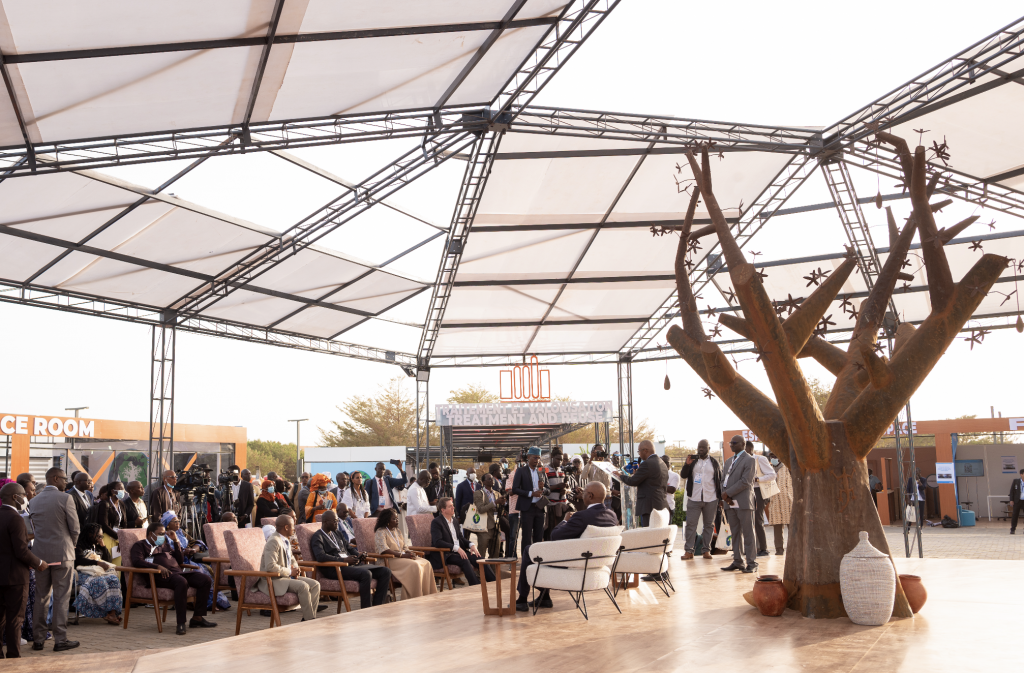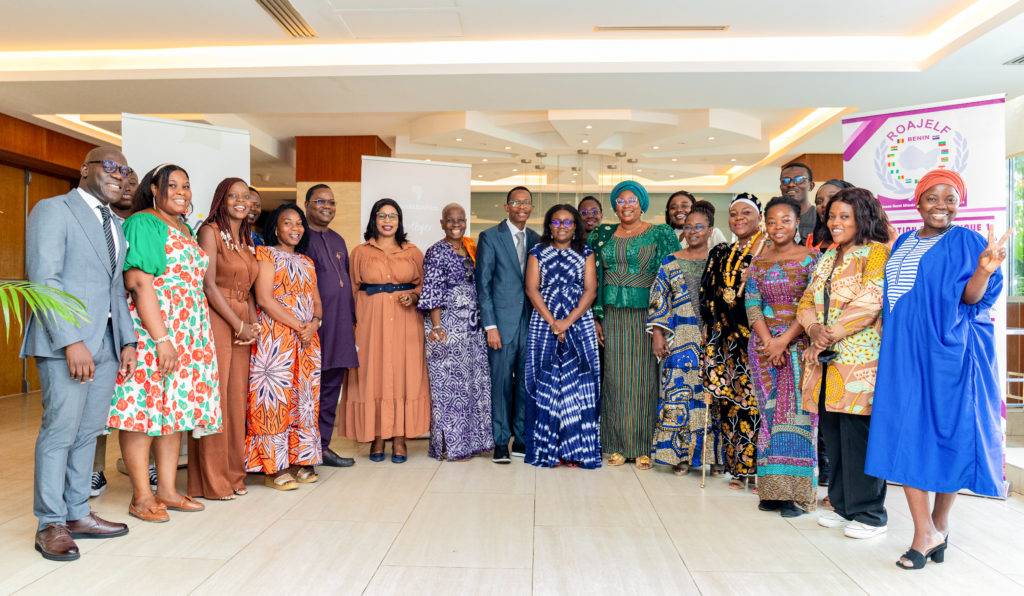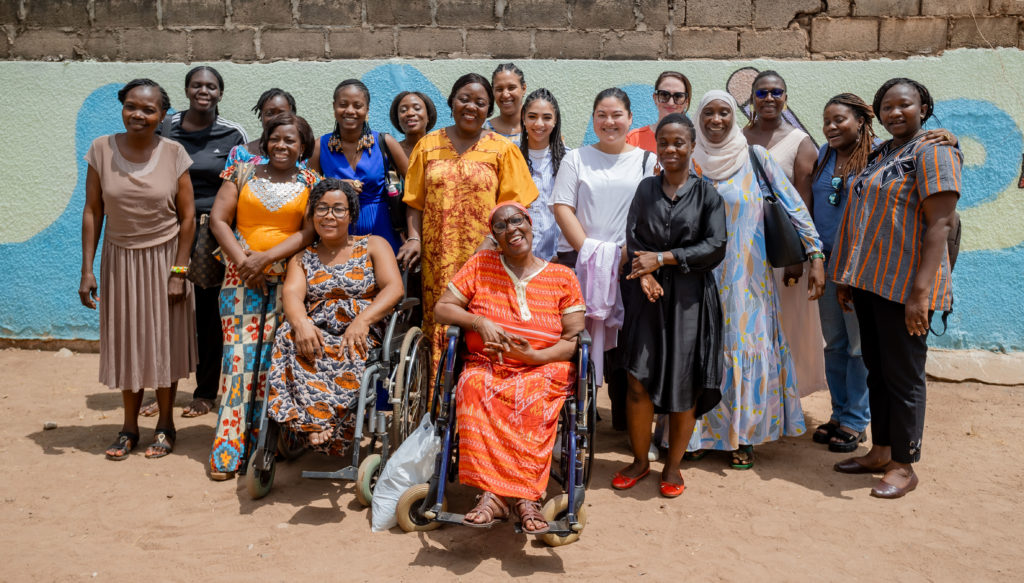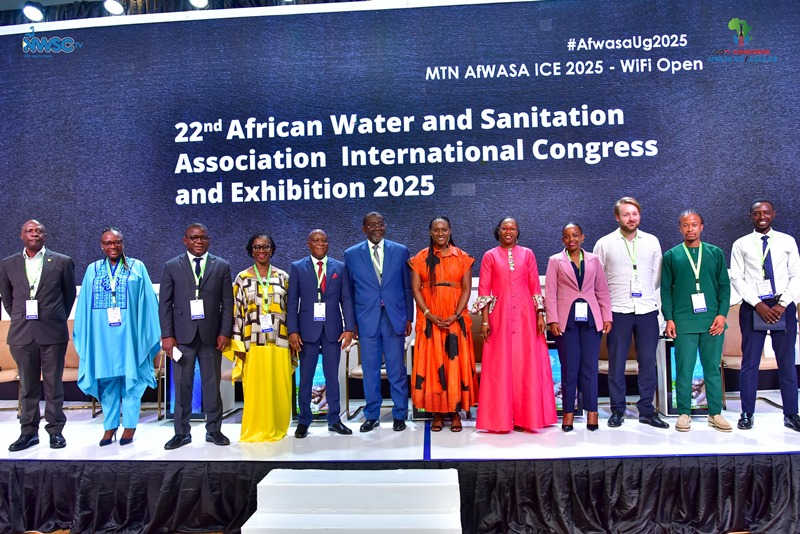A Model Sanitation Solution: How cleaning up our sanitation act can help foster development and progress in societies

For the first time, the World Water Forum was held in Sub-Saharan Africa. The Forum is the largest global event dealing with water and sanitation issues.
Taking place every three years since 1997, the ninth World Water Forum was held from the 21st to 26th March 2022.
The World Water Forum usually takes place in partnership with a host country, to serve as a platform for the multiple water and sanitation stakeholders. This year’s edition in Senegal focused on four strategic priorities: water security, cooperation, water for rural development, and tools and means governing the framework needed to manage sustainable access to water and sanitation – such as financing, governance, knowledge management and innovation.
The Dakar Forum was intended to be the forum of solutions through the promotion of major innovations such as the sanitation village.
« As ordinary citizens, CSOs, policymakers, and general stakeholders – as human beings, really – it is our duty to ensure we help change this narrative » … « Access to sanitation is a human right that provides one of the most elemental forms of dignity. »
Yacine Djibo, Founder and Executive Director of Speak Up Africa
Water security is a serious problem. Every year 2.6 million people die from water-borne diseases. Worldwide, approximately 2.4 billion people don’t have access to basic sanitation, such as toilets and latrines. In Sub-Saharan Africa, 72% of the population live without access to basic sanitation and 32% still practice open defecation. This lack of adequate sanitation practices hinders the eradication of water-borne diseases such as dysentery, as well as neglected tropical diseases (NTDs).
During this Forum’s edition, Speak Up Africa, a policy and advocacy action tank, launched the Golden Sludge Campaign, an initiative aiming to increase awareness, prioritization, and political commitment through the implementation of equitable and inclusive sanitation policies. This campaign also incorporates political commitment for sanitation, by developing and implementing inclusive policies with clear outcomes and benefits.
Speak Up Africa supported also the launch of the “Sanitation Village”, a space which was created for facilitating advocacy, awareness, discussion and learning about sanitation and hygiene, learning, exchanging about innovations and championing advancements in this sector.
The Sanitation Village underscores the need for dedicated access to safely managed sanitation. The sanitation community struggles to benefit from exchange platforms where they can share knowledge, innovations. Previous World Water Forum editions were not inclusive for sanitation stakeholders. Senegal being a leader in the sanitation sector, both regional and international levels; it was crucial for its leadership to provide an inclusive space for the sanitation community. Hence, the Sanitation Village initiative emerged to be a platform to reflect on sanitation challenges and provide solutions that work!
Stakeholders including Speak Up Africa organized side-events and sessions as part of the Sanitation Village – with the premise of sanitation challenges being discussed by its community. Sessions included a panel organized by Speak Up Africa on the inclusion of gender at all levels of the sanitation sector. Still today, gender issues fail to be well integrated in the sector, both in terms of access to services and infrastructures, and of decision-making processes.
« Key in this planning, and again in providing dignity to our citizens, is inclusivity. We cannot forget the diversity of humanity’s lived experiences – and we need to be able to cater for all types of people, across a wide range of situations. »
Ms. Rajah Sy, Director of Special Olympics
Sanitation issues affect all people living in vulnerable situations – especially women and girls who menstruate. One in ten girls do not attend school during their menstrual cycle due to lack of proper toilet facilities for their own needs. In Senegal, women lose 40% of their income during these five days.
The Sanitation Village was a dear space for decision-makers, Mr. Serigne Mbaye Thiam, Senegal’s Minister of Water and Sanitation and Honorable Ake Natonde, the Member of the Parliament from the Republic of Benin – both partook in discussions to strengthen the collaborative dynamic for a more resilient sanitation and health sector.
« Access to toilets for all is not only a question of dignity but also a question of humanity. Together, we can convene to provide better access to safe sanitation and understand the ways that sanitation issues impede the progress of their areas and environments. » … « Furthermore, it allows us to demonstrate how facilitating inclusive sanitation issues can foster development. »
Mr Thiam.
« Fundamentally, this work cannot be done alone. » … « It is important that we find ways to work together across the entirety of the water and water-sanitation value chain. »
Hon. Natonde
« It is important to develop and implement a coordinated and inclusive strategic plan to identify the needs of each one of us, and to develop and implement fair and equitable solutions. We have set goals for 2030, which is not much time. We must ensure better facilities for all our citizens. Only collaboration can bring about a better Africa, along with better hygiene practices, a reduction in waterborne diseases, a reduction in the number of people sick or dying due to lack of access to water and above all, preserved dignity for the most vulnerable. »
Pr. Ndioro Ndiaye, Minister Councilor
Key highlights of the World Water Forum included signing of two MOUs: one between the Government of Senegal and the Gates Foundation; and another between Speak Up Africa and the African Ministers’ Council on Water (AMCOW).
The 9th World Water Forum met expectations by effectively providing platforms of discussion and knowledge sharing convening both water and sanitation stakeholders and decision-makers. The Declaration issued at the closing of the Forum includes actions that will move us closer to the Sustainable Development Goals by 2030!


